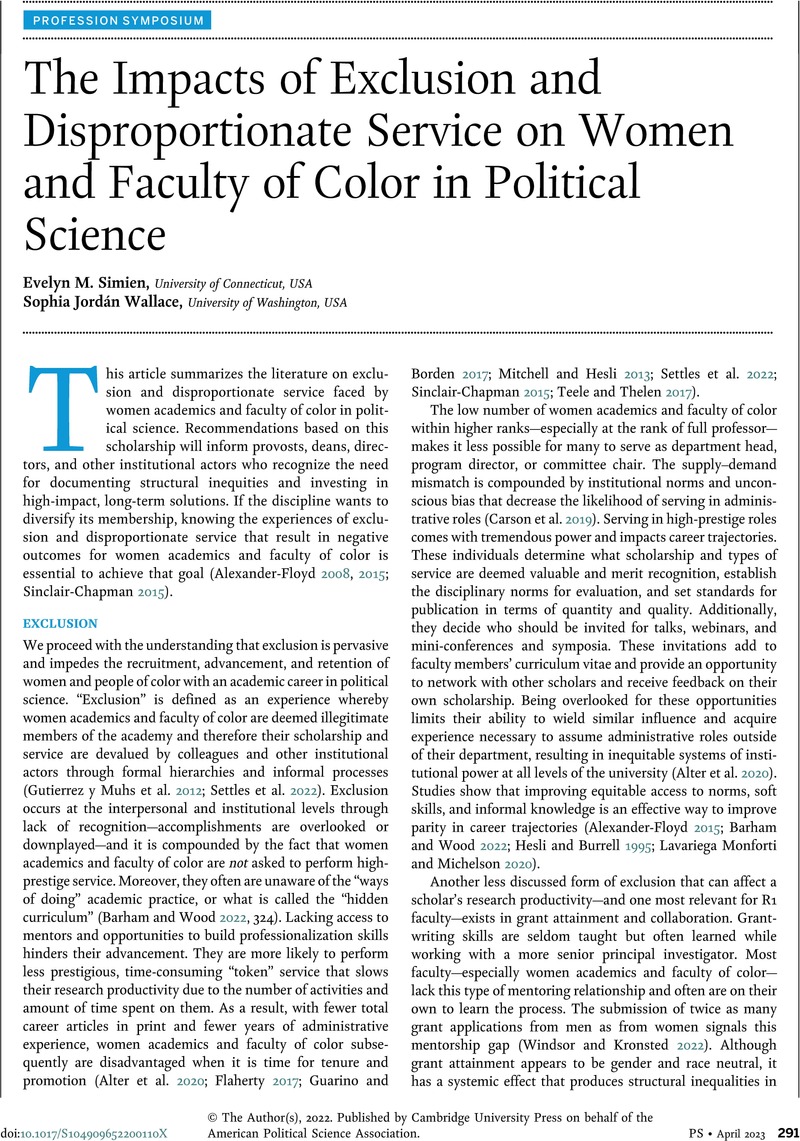Crossref Citations
This article has been cited by the following publications. This list is generated based on data provided by Crossref.
Ackerly, Brooke A.
and
Franklin, Sekou
2023.
Climate and the American Political Science Association.
PS: Political Science & Politics,
Vol. 56,
Issue. 2,
p.
299.
Castelao-Huerta, Isaura
2023.
But We Stopped All This
: Stopping Practices of Women Full Professors in Neoliberal Times
.
Journal of Women and Gender in Higher Education,
Vol. 16,
Issue. 4,
p.
295.
Nishikawa, Masaru
Sakai, Daisuke
and
Matsui, Akira
2024.
The impact of the internationalization of political science on publishing in two languages: the case of Japan, 1971–2023.
Scientometrics,
Vol. 129,
Issue. 11,
p.
6975.
Payler, Megan
Huo, Cynthia
Anderson, Cameron
Biswas Mellamphy, Nandita
and
Alcantara, Christopher
2024.
The Gender Gap and Academic Publishing in Political Science: Evidence from Canada.
American Review of Canadian Studies,
Vol. 54,
Issue. 2,
p.
141.
Rosen, Amanda M.
2024.
Teaching Political Science: A Practical Guide for Instructors.
p.
29.



